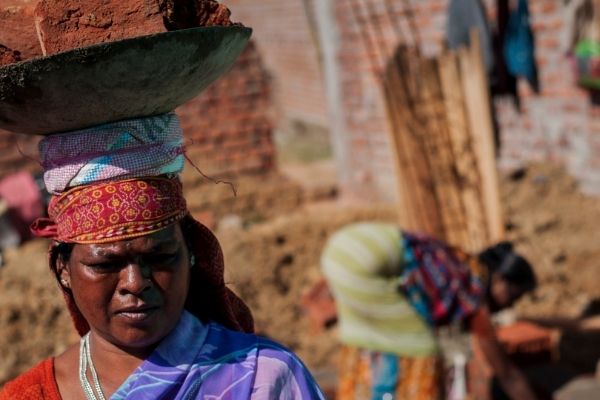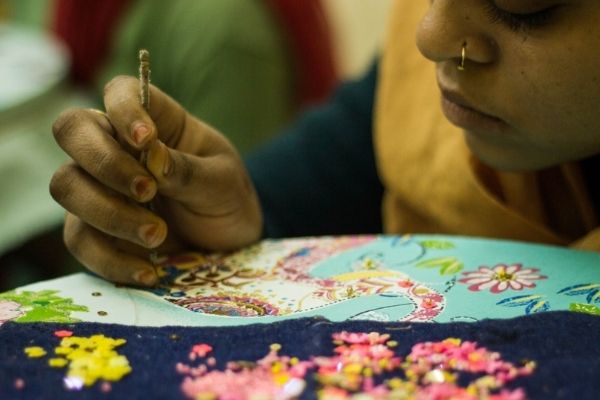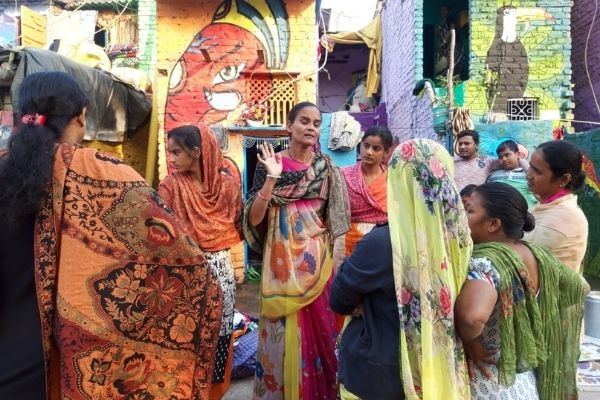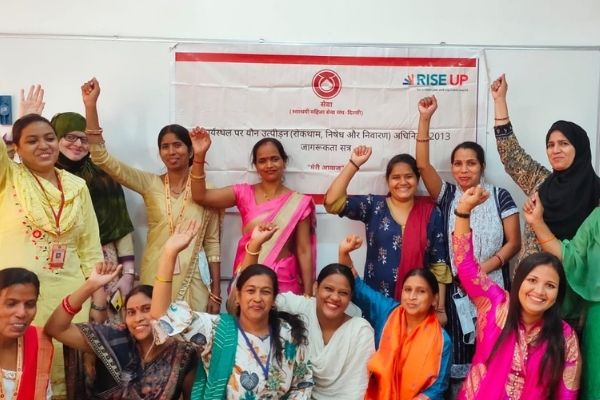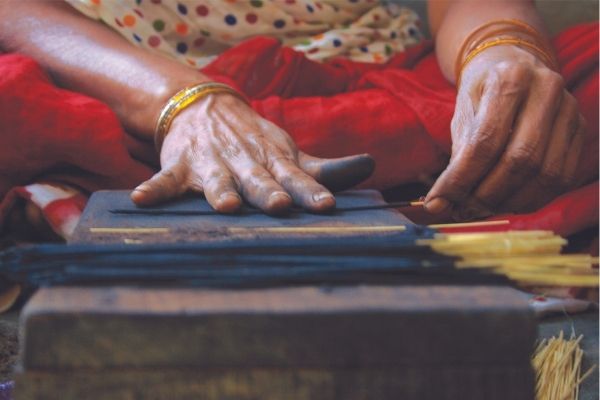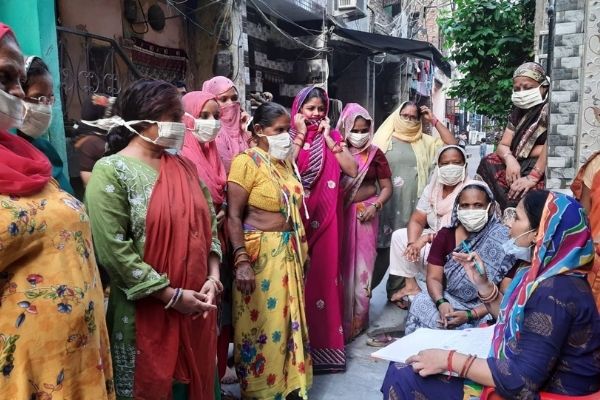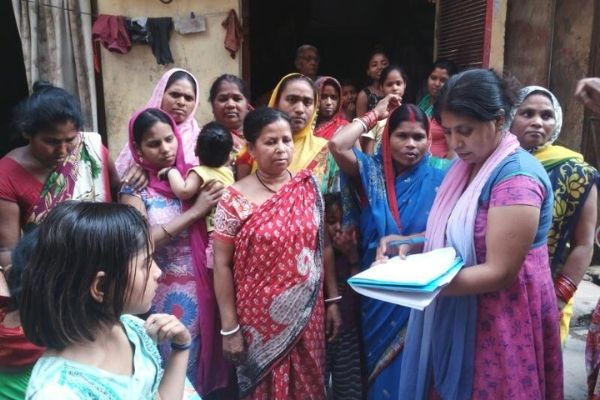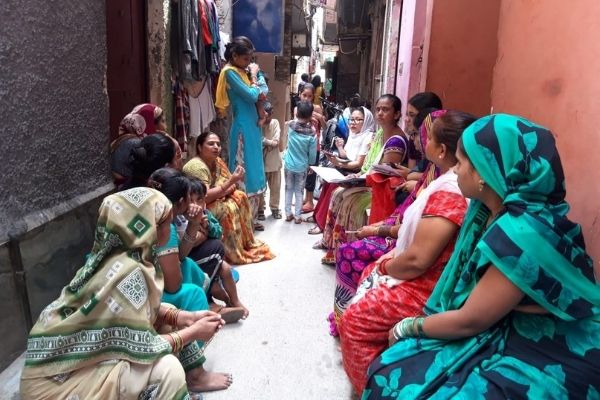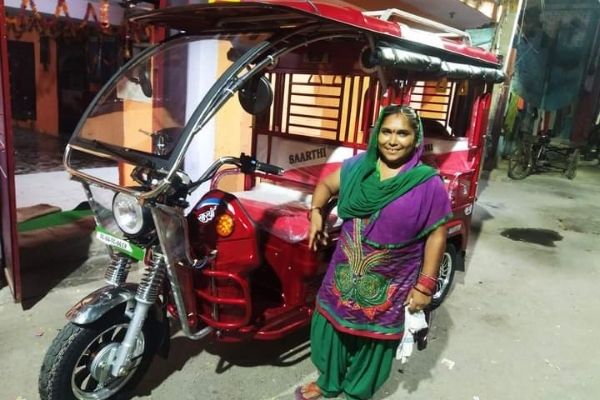SEWA Bharat’s History in Delhi
Delhi’s informal economy workforce remains unrecognised despite being in the nation’s capital. Since 1999, SEWA has been organising women in order to bring them out of the shadows, support their livelihoods, and lift them out of poverty. SEWA’s work in Delhi began with women vegetable vendors in Jahangirpuri area.
While organising began in a small locality, other women soon joined as they shared common livelihoods, concerns, and goals. Through 11 SEWA Shakti Kendras (SSKs), SEWA Delhi now covers many areas of the city, including: Jahangirpuri (North Delhi), Bhalswa (North Delhi), Rajiv Nagar (North Delhi), Raghubir Nagar (West Delhi), Sunder Nagari (North-East Delhi), Nand Nagri (North-East Delhi), Mustafabad (North-East Delhi), Gokulpuri (North-East Delhi), Harkesh Nagar (South-West Delhi), New Ashok Nagar (East Delhi), Tagore Garden (West Delhi).
Major Trade Groups

Waste Recyclers
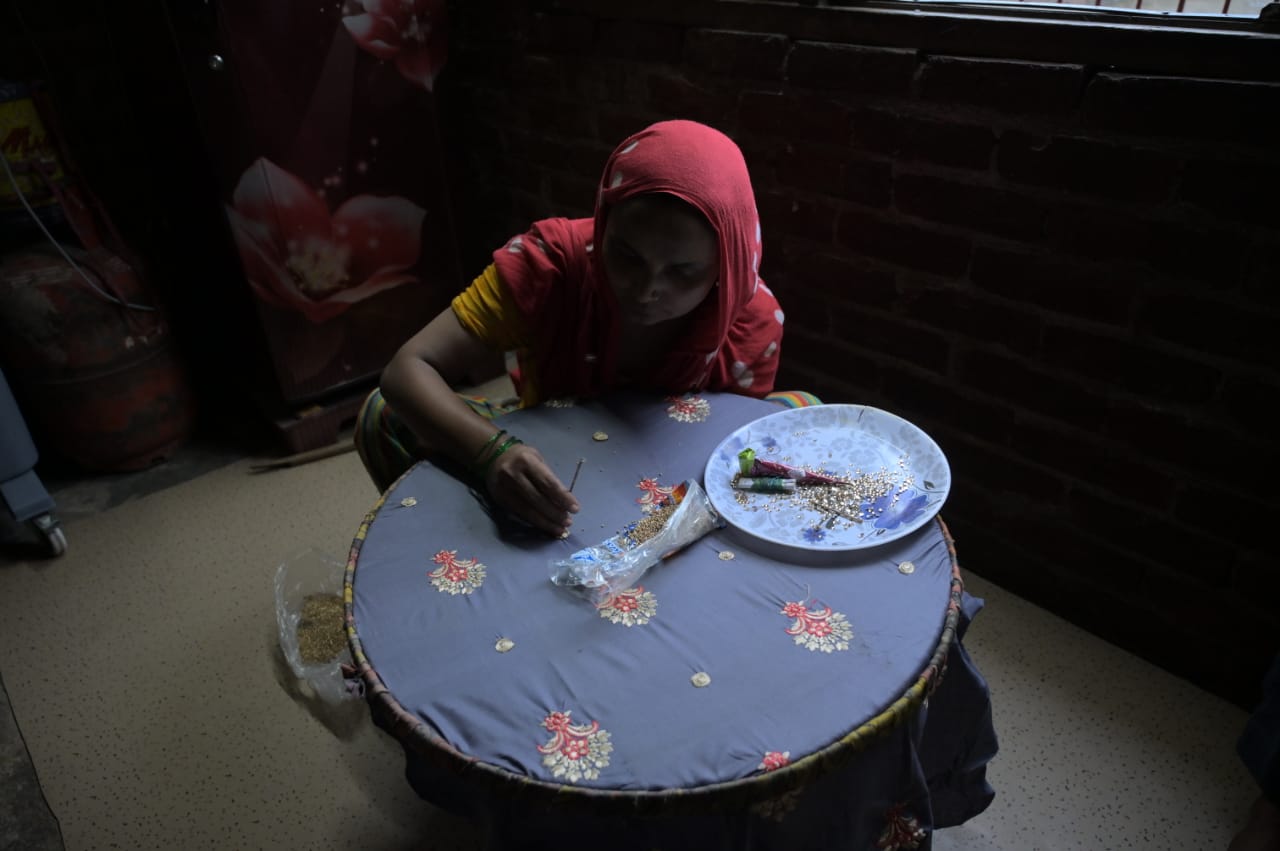
Home-Based Workers
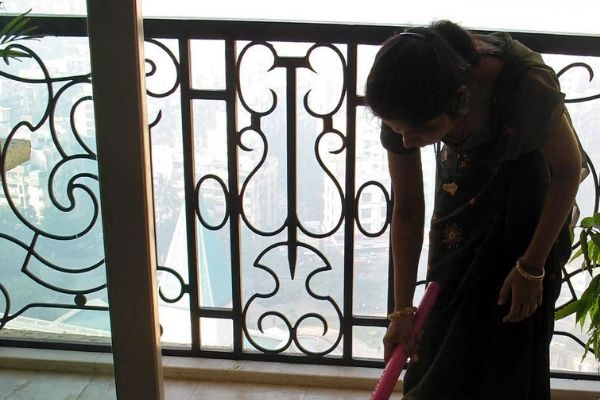
Domestic Workers
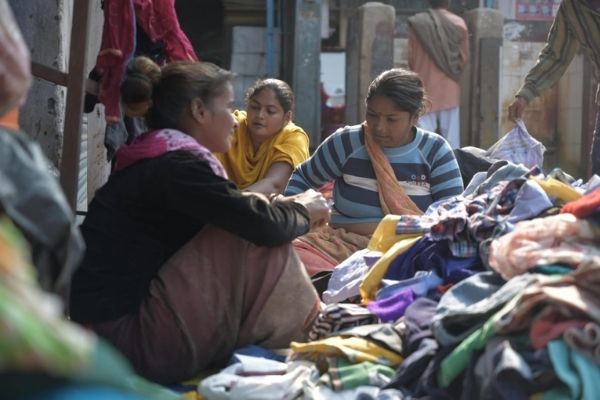
Street Vendors
